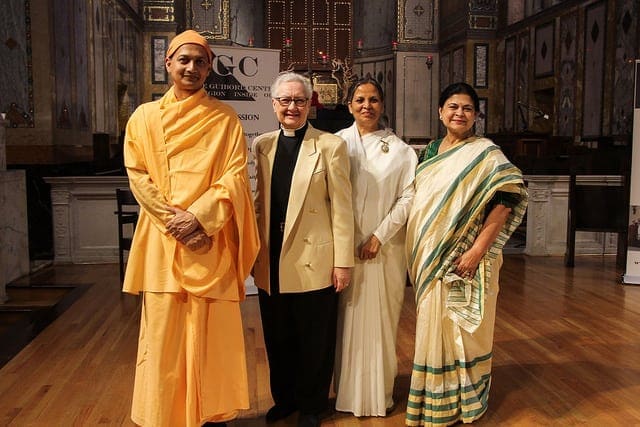
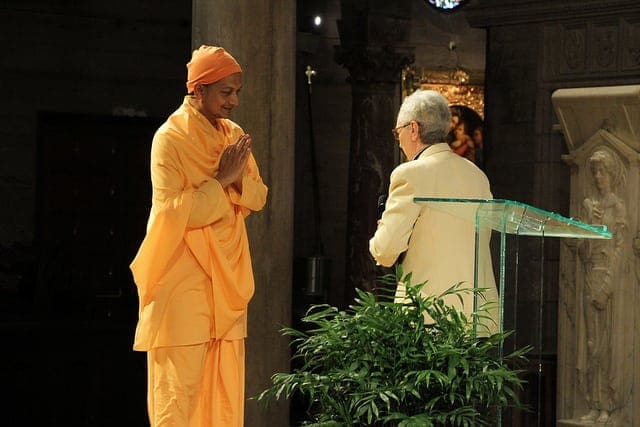
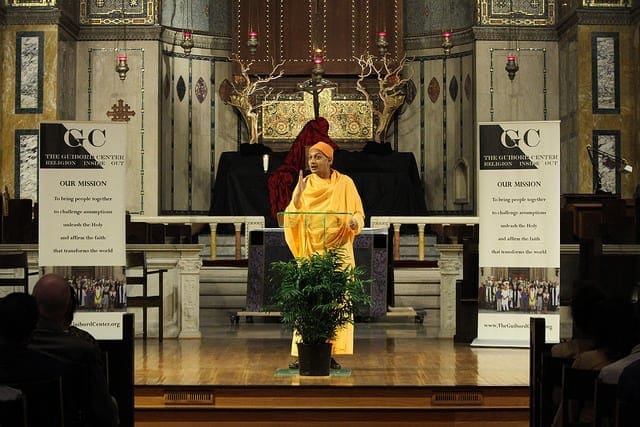
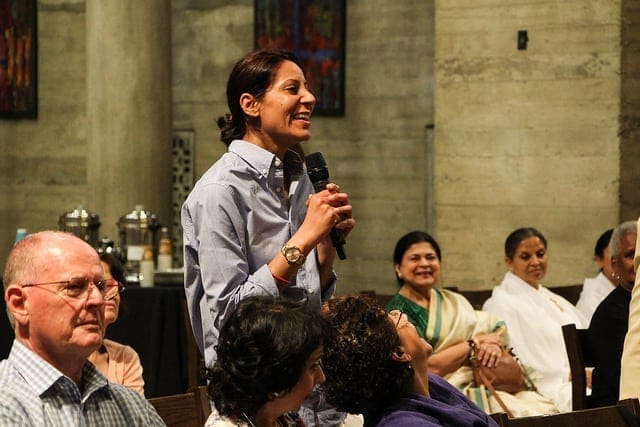
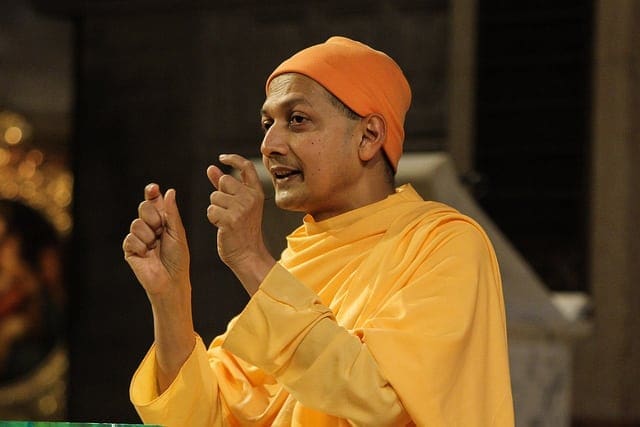


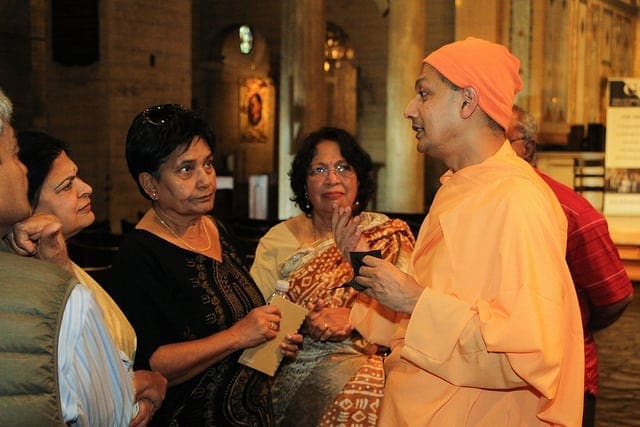
Three Great Powers of the Mind – A Photo Journal
by Dr. Lo Sprague
Swami Sarvapriyananda is a monk of Ramakrishna Order who is well known for his lucid and simple method of describing the essentials of religion and spiritual life. He belongs to the Vedanta school of Hinduism and has given many lectures, including a Ted Talk. He has a way of simplifying the deepest concepts.
Rev. Dr. Gwynne Guibord took to the stage on a perfect southern California afternoon to introduce Swami Sarvapriyananda of The Vedanta Society by speaking to why this topic has particular importance right now. “As you all know it seems that the entire world has gone mad” she said. “Many people are having a very, very difficult time. In this broken world it is easy to become overwhelmed with grief and despair culminating in our inability to move forward.”
“Each of us here has been given a purpose in life, a reason for being, and each of us carries within a caring heart and a mind filled with a multitude of ideas. We are beckoned as people of faith to rise above our heartache and work in community to make a difference in the world, to laugh and to play and to know within the deepest part of our souls that we are good and contributing to something larger than ourselves.”
How do we access that knowledge? Through Swami Sarvapriyananda’s Three Great Powers of the Mind.
Given Swami Sarvapriyananda’s intense training and many accomplishments (not to mention the twinkle in his eye) it became clear that he was an excellent choice to lead us though the mind numbing trauma of today.
Swami framed his reflections as a synthesizing of Hindu wisdom traditions, the wider wisdom traditions of the great religions of humanity, and insights from positive psychology – neuroscience. He presented the struggle of the human condition in exquisite simplicity by referring to the Hindu scripture the Mahabharata.
In the Bhagavad Gita, the epic tale at the heart of The Mahabharata, Lord Krishna tries to teach both Arjuna, the Hero and Karna, the Villain, about the Path towards truth and enlightenment. Karna’s response sums up the human struggle: “My problem is I know what is right – I don’t feel like doing it. I know what I’m doing is wrong – I cannot stop myself from doing it. I have no inclination for being righteous. There is some force within me. I cannot contain myself. It is a great struggle.”
This, Swami points out, is the struggle that every one of us faces: how to deal with the passions within that drive us to do what we know, full-well, is wrong.
Swami continues.
The Villain says: “This is what I am and nothing can be done about it. I am not interested in changing.”
Arjuna says: “This is what I am – how can I be better?.. Teach me.”
Swami pounces. “There it is! This little decision makes all the difference in our lives.”
The First Great Power of the Mind – The Power to Decide
We discover the first great power: the power to make a decision. We don’t decide because we’re on automatic; it doesn’t occur to us that we can decide. We can always decide “no” to one thing and “yes’’ to something else – from moment to moment. The real discussion began.
Swami pointed out further that we can use this power to decide about three kinds of things: what thoughts we entertain, what words we use and what actions we take. That’s a level of consciousness and responsibility as well as freedom and empowerment that we are not used to claiming in this time and culture. His wisdom is timely and important. We need to listen and to wake up.
The Second Great Power of the Mind: The Power of Concentration, of Focus.
“The quality of your life depends on what you pay attention to and how much you pay attention to it” (Daniel Goleman). Swami awakened us to the awareness that the mind is used for entertainment and distraction.
It is hard work to focus the mind. Meditation serves as a tool to learn to discipline the mind, to learn to shift the mind from one thing to another that serves us better. He spoke about how yoga can help us to get the mind serving our best selves and wove together a number of examples from ancient wisdom to modern brain research.
The Third Great Power of the Mind: The Power of Unselfishness
“The meaning of Life comes from what we doing something for others.” This is a power that is spoken of far too seldom. It seemed obvious as Swami threw a light on it. Again he brought into the discussion both ancient teachings and modern science giving a new appreciation to the act of giving.
